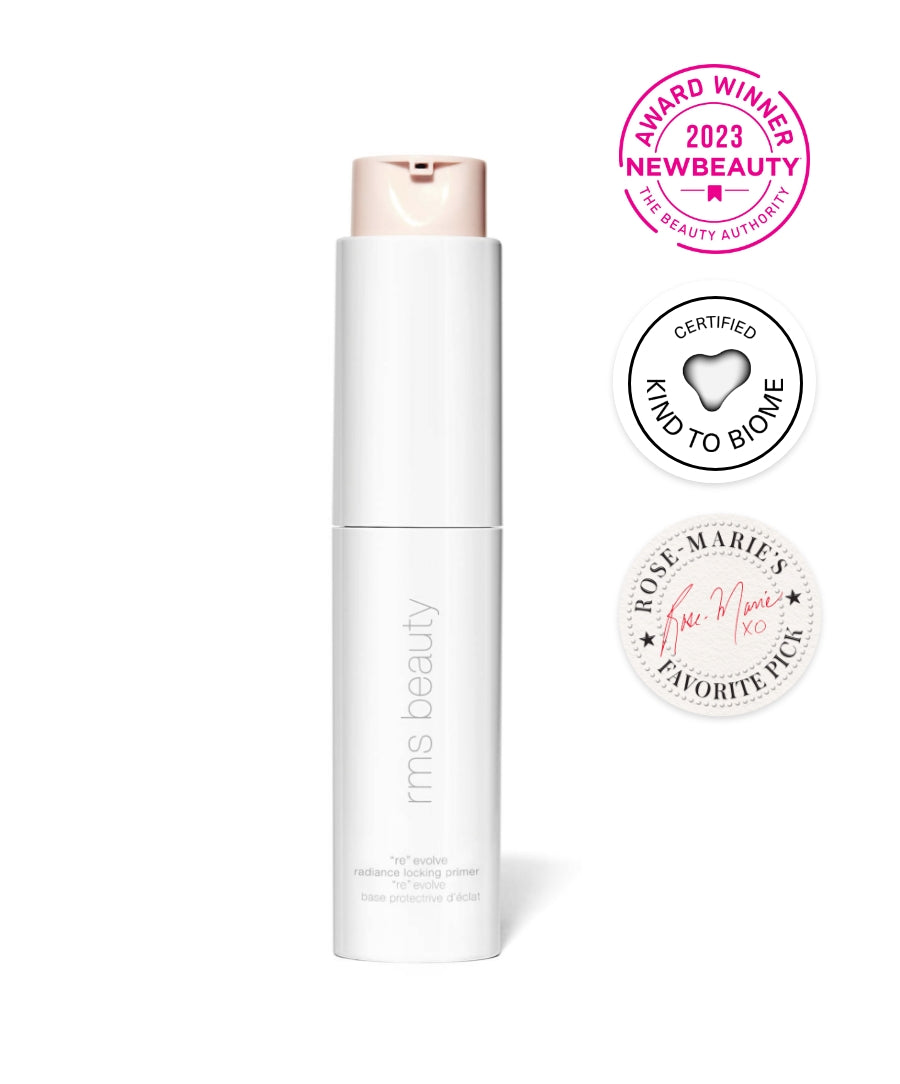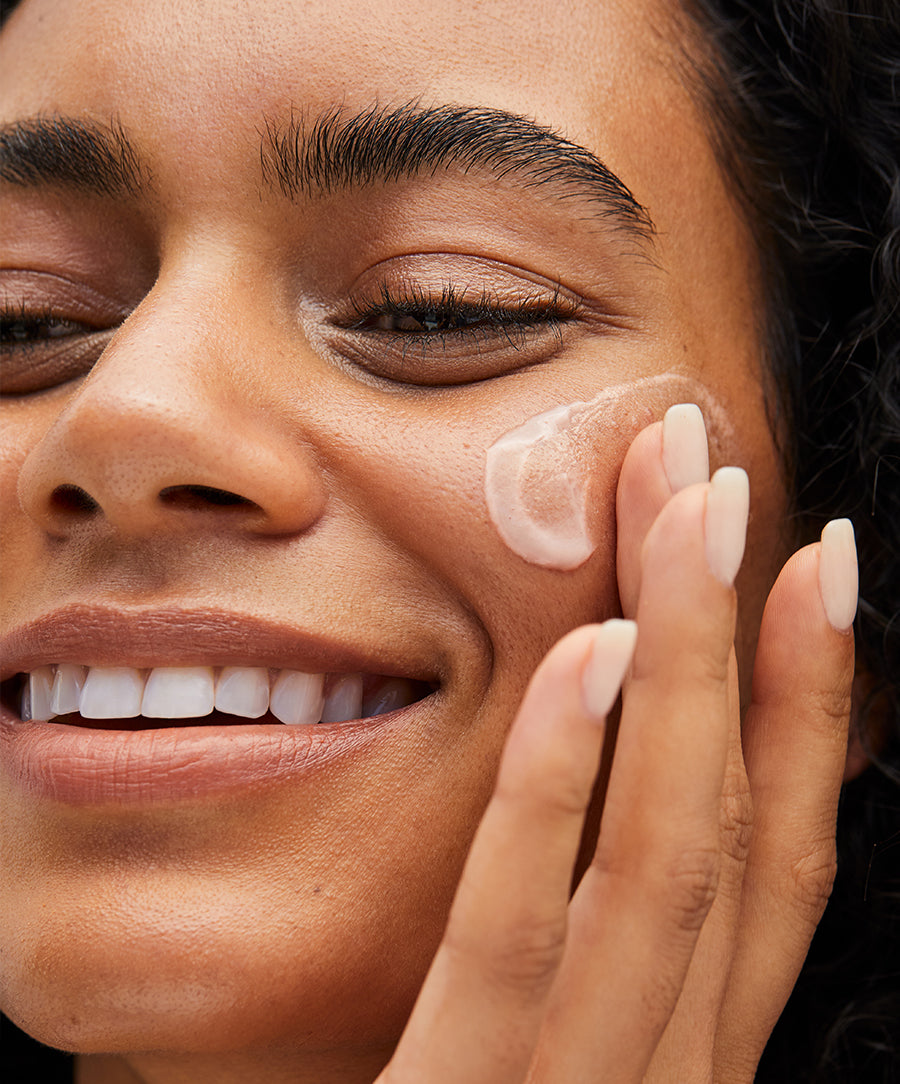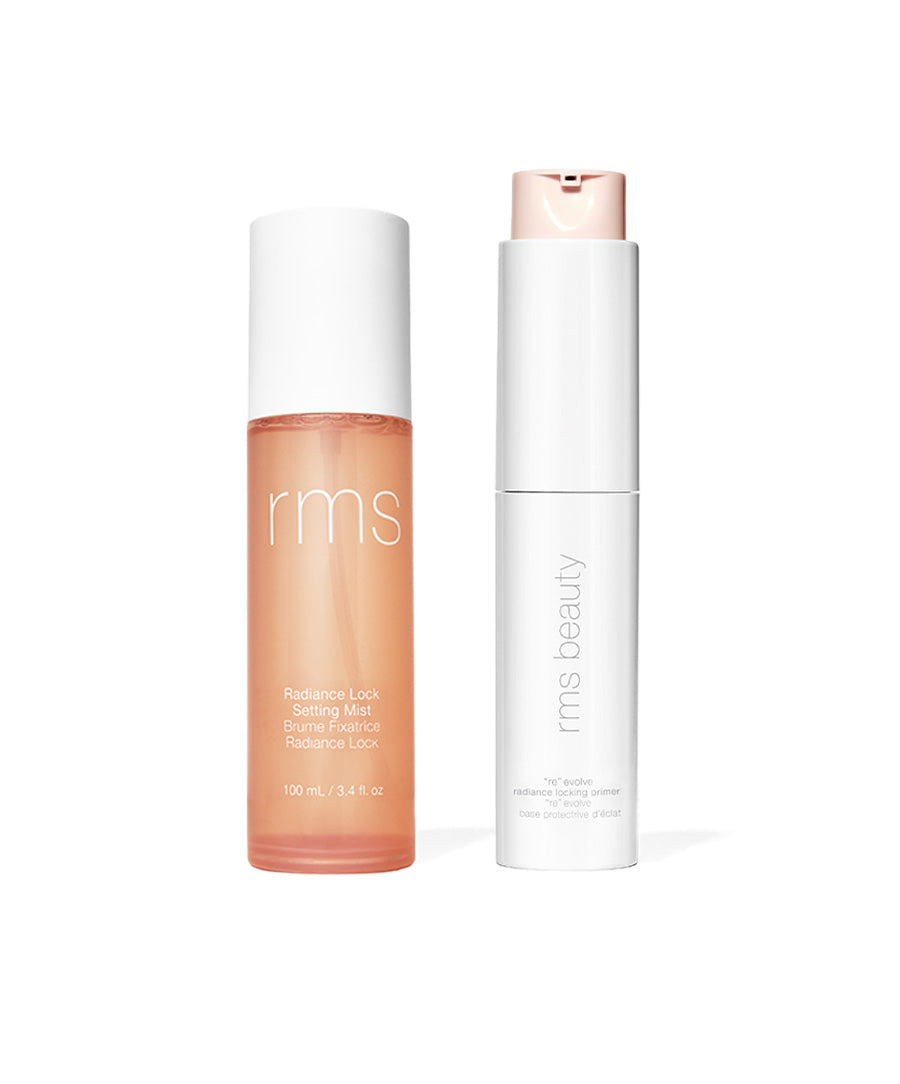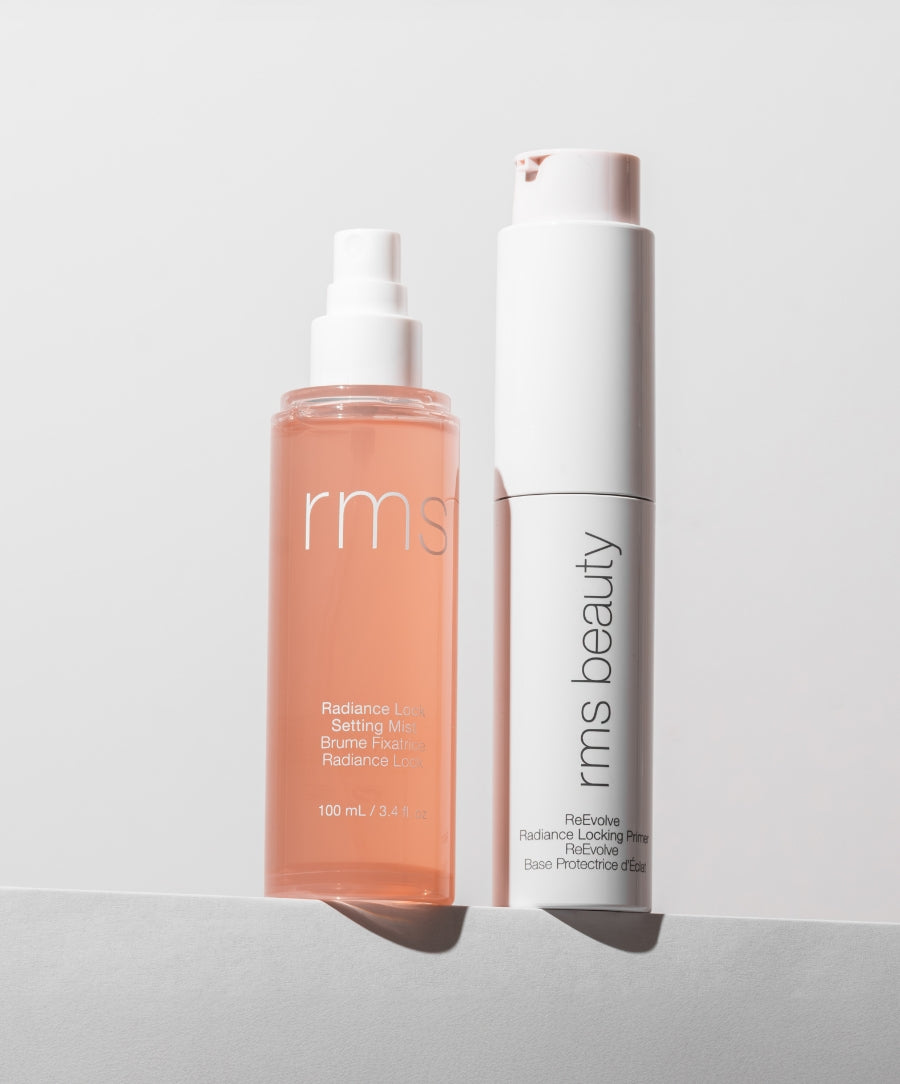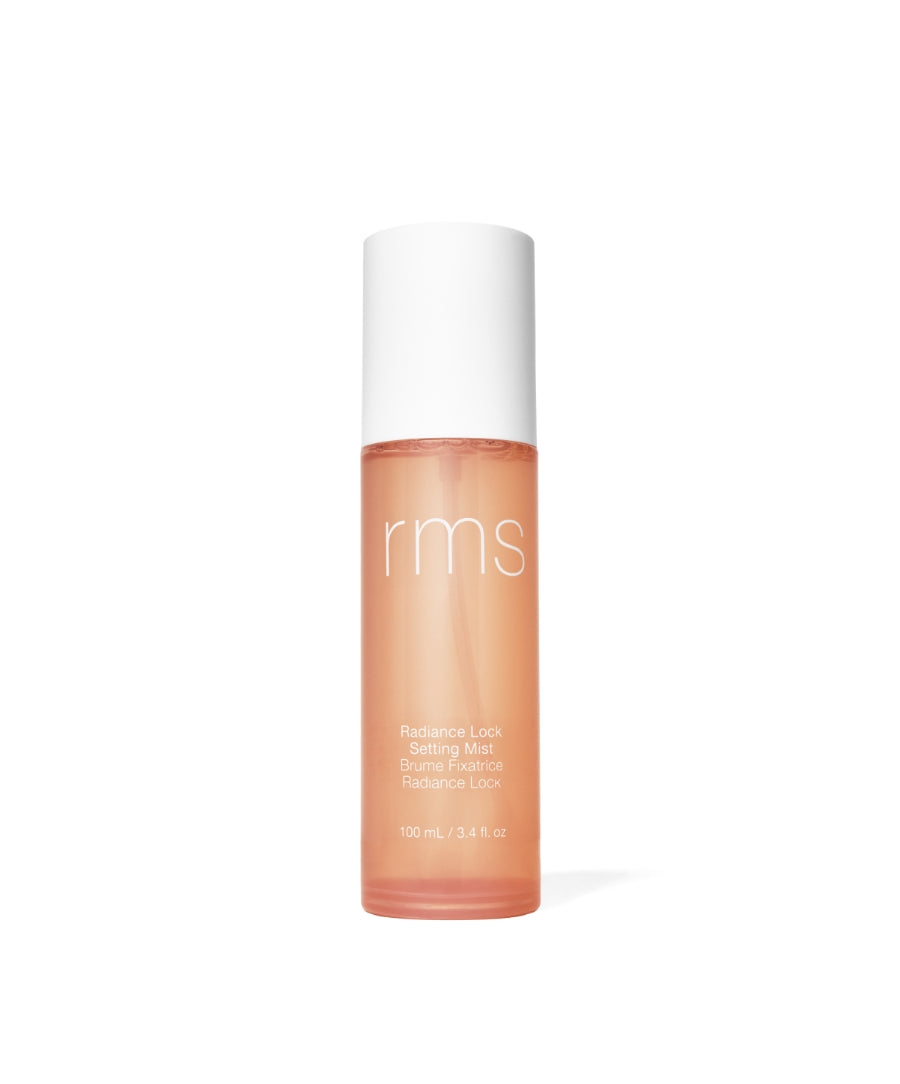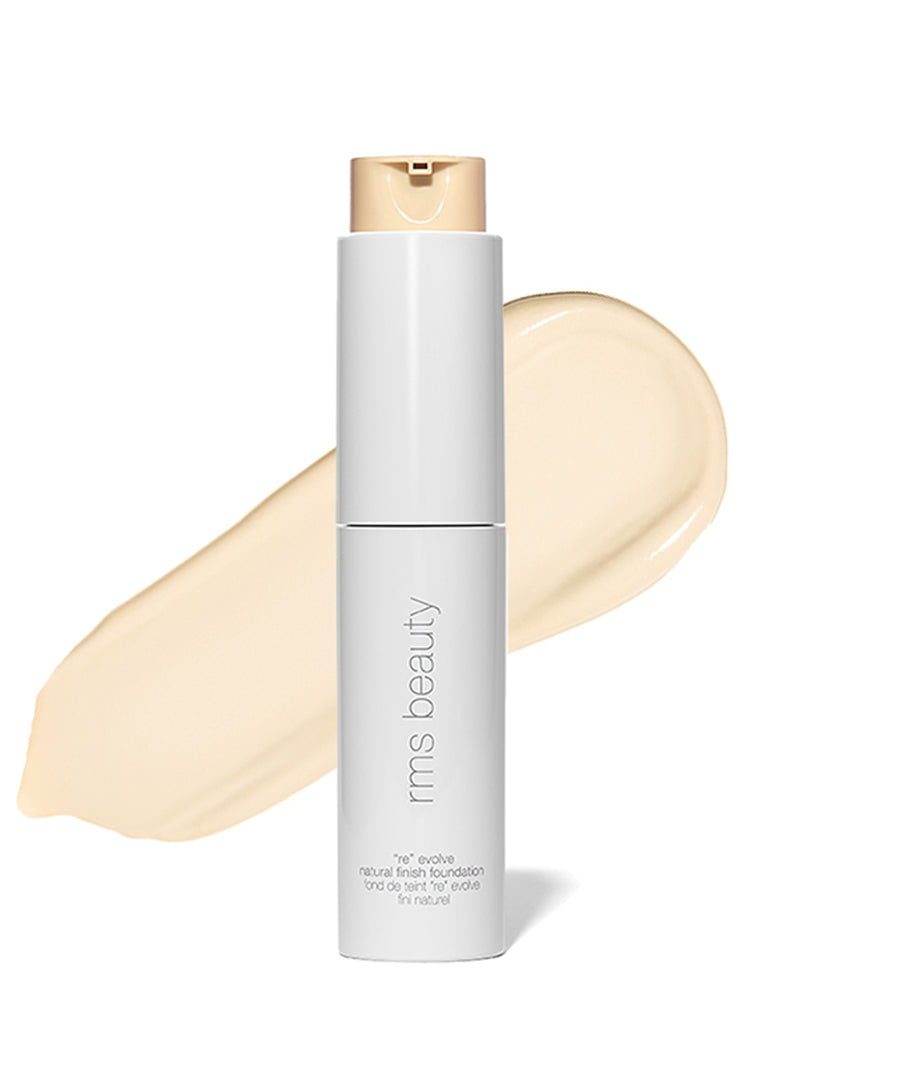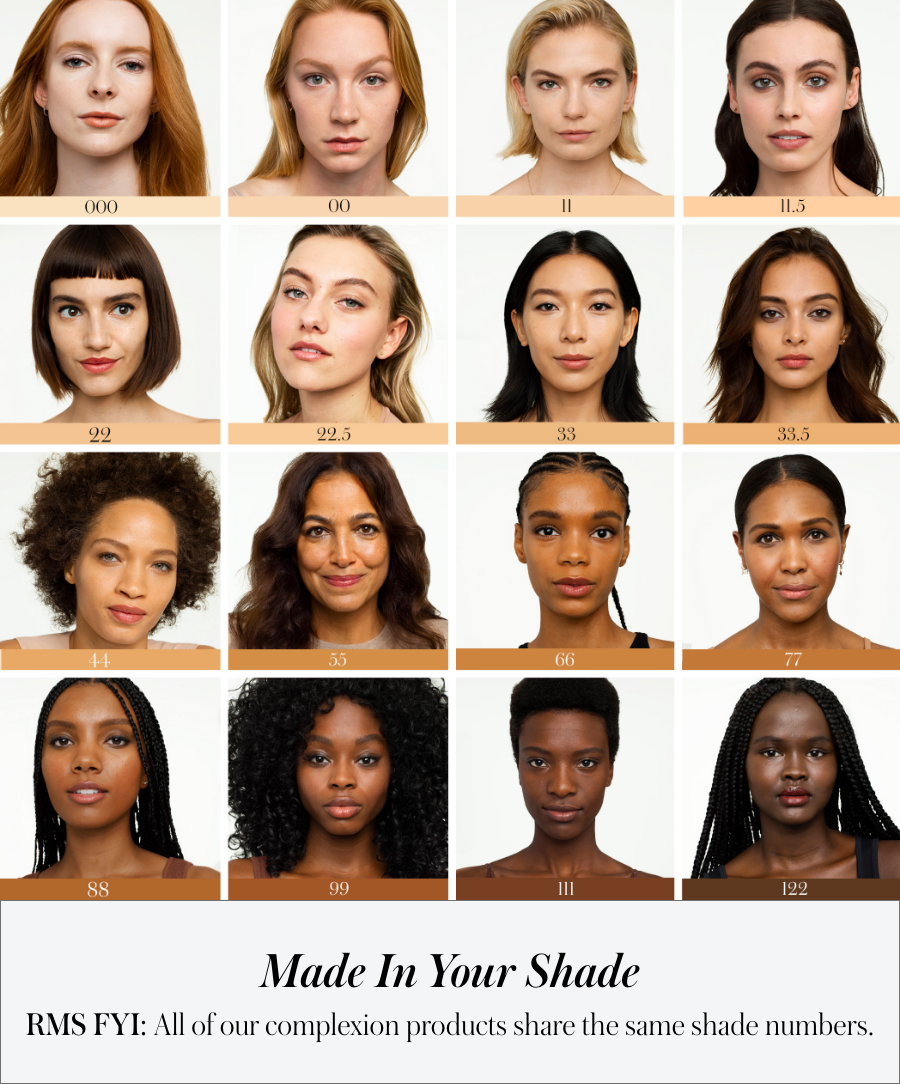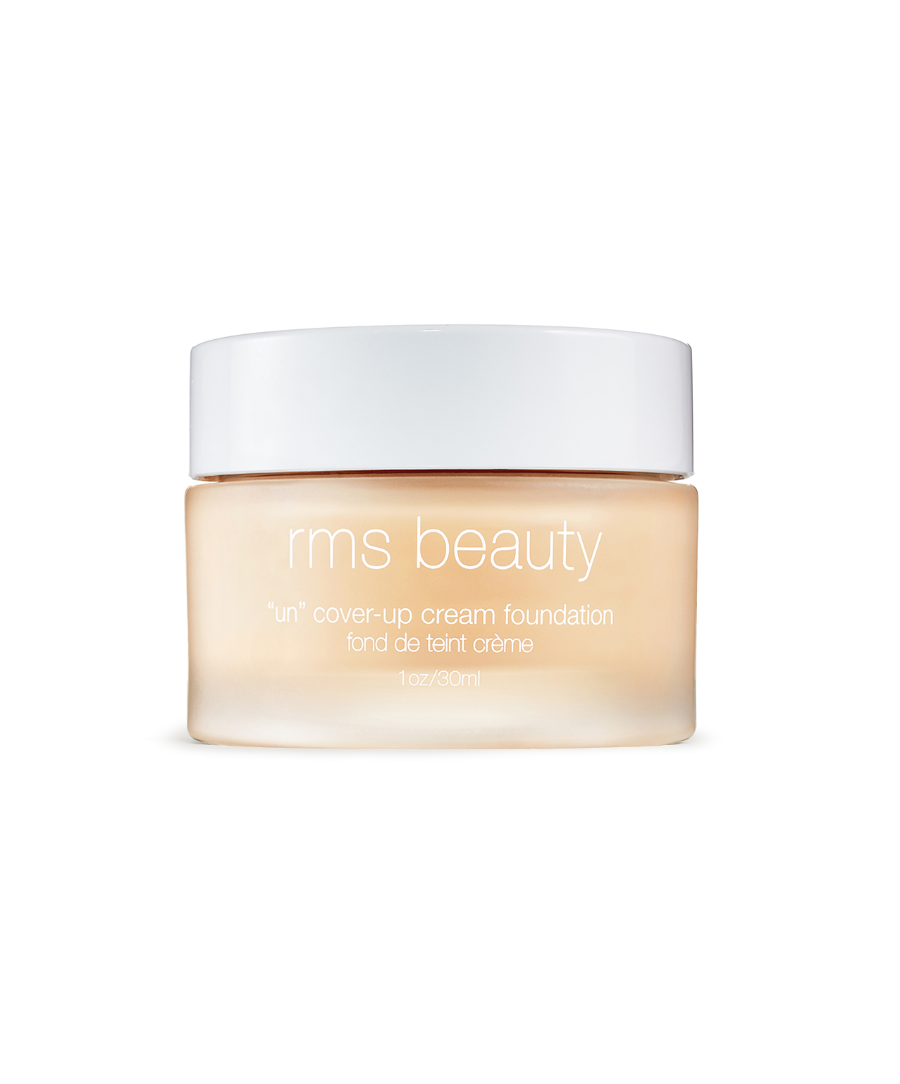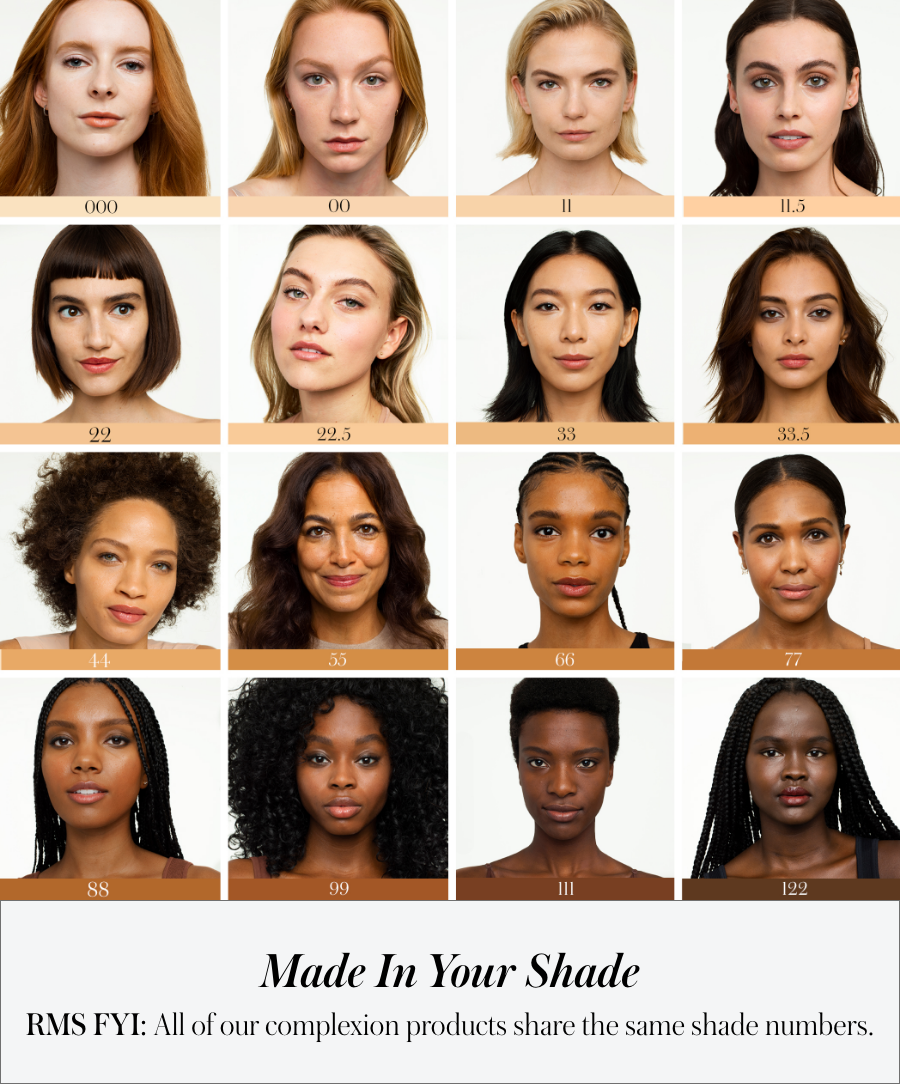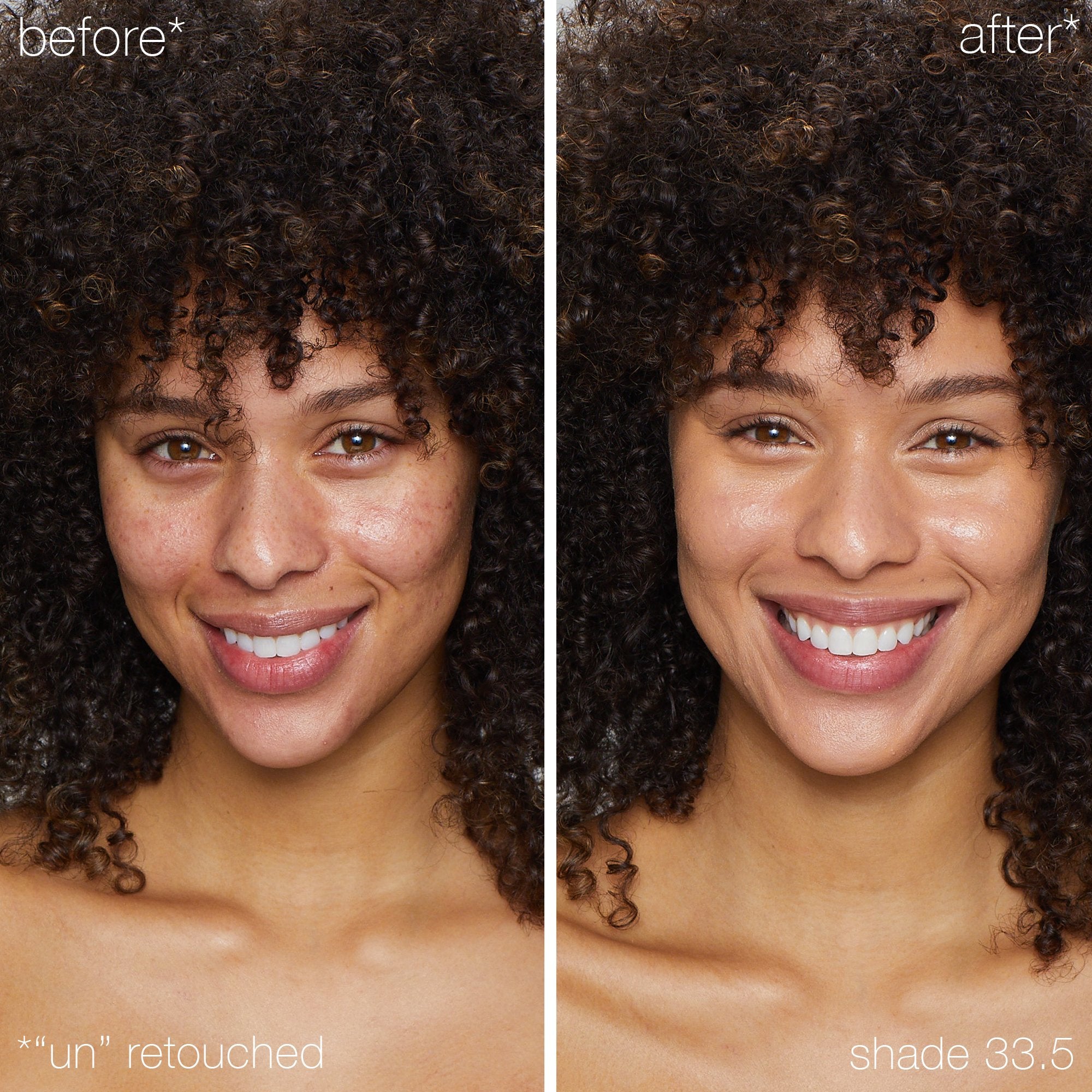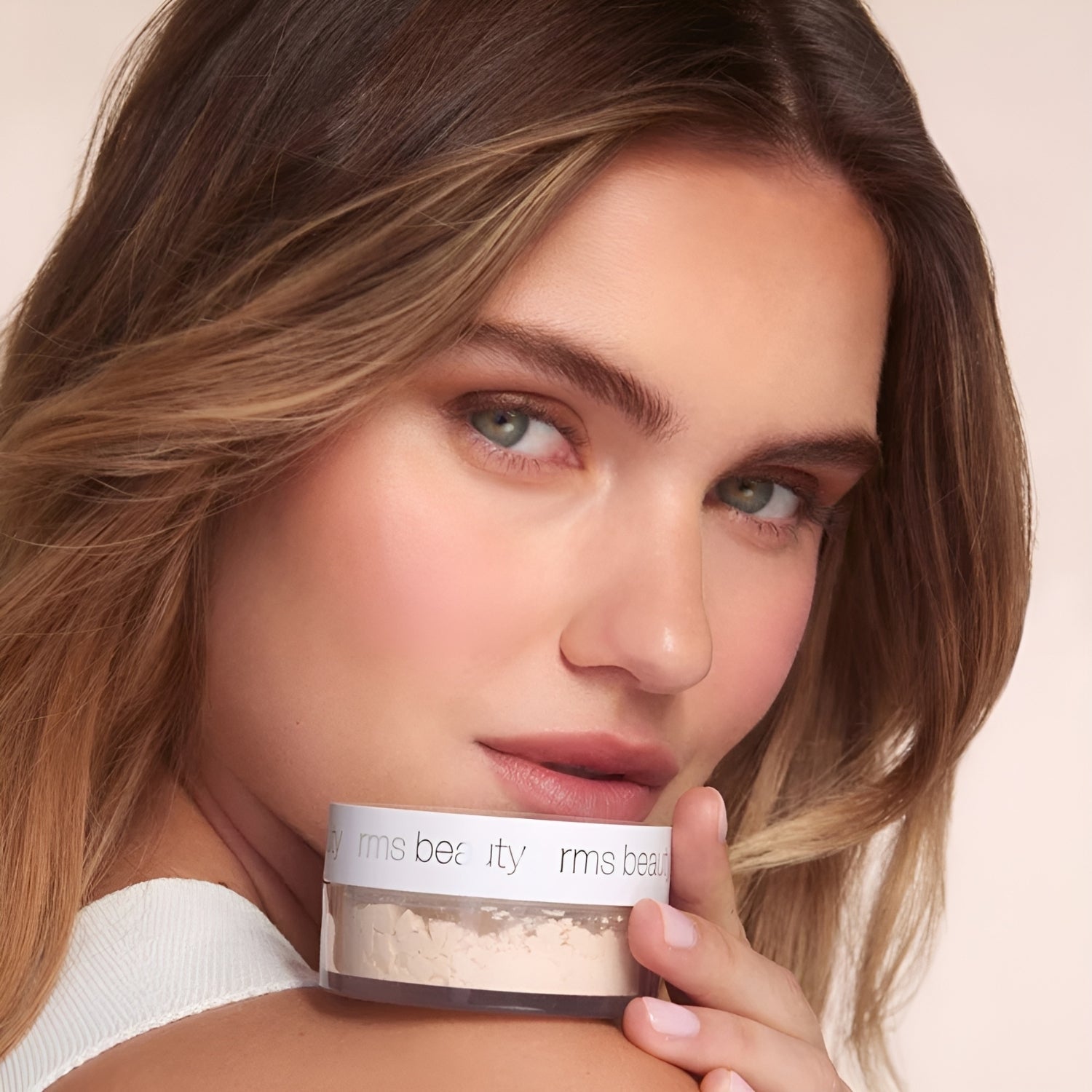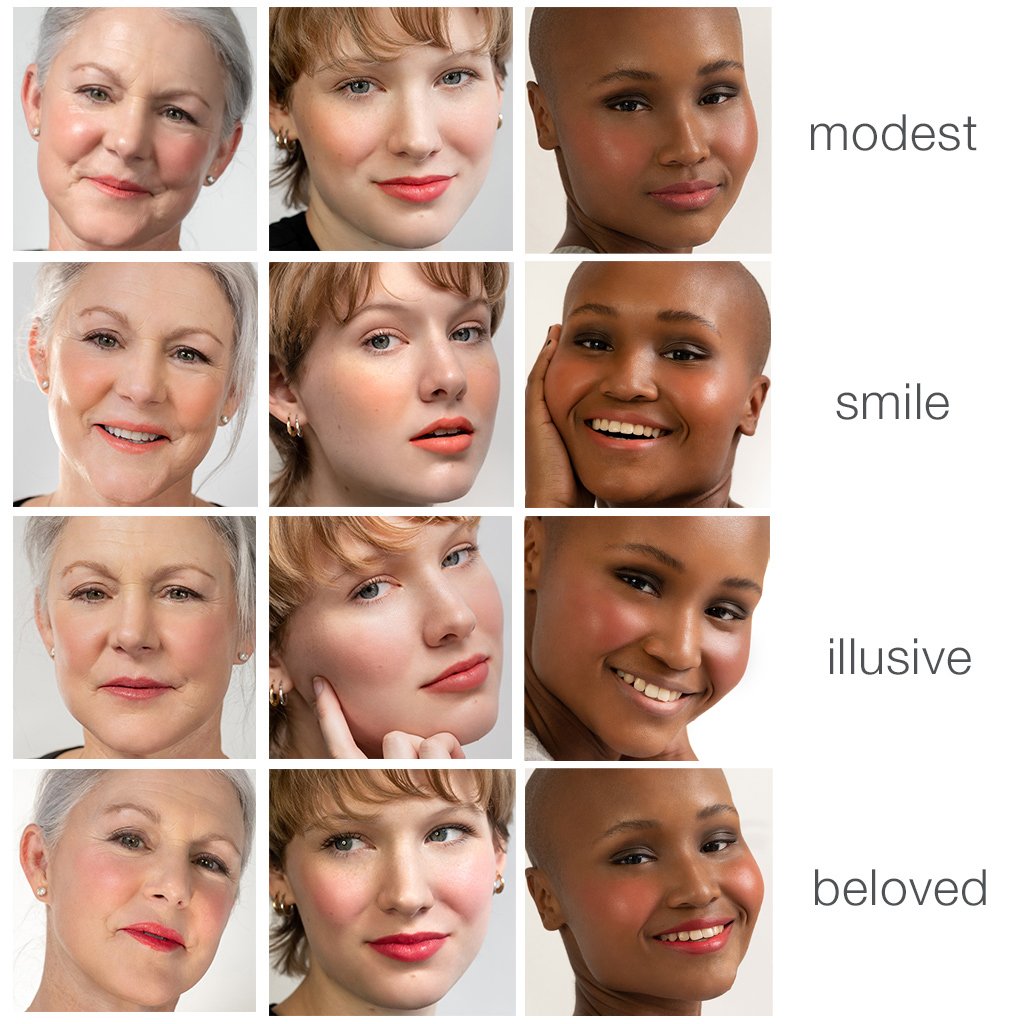What Is Makeup Foundation Primer & How Do I Use It
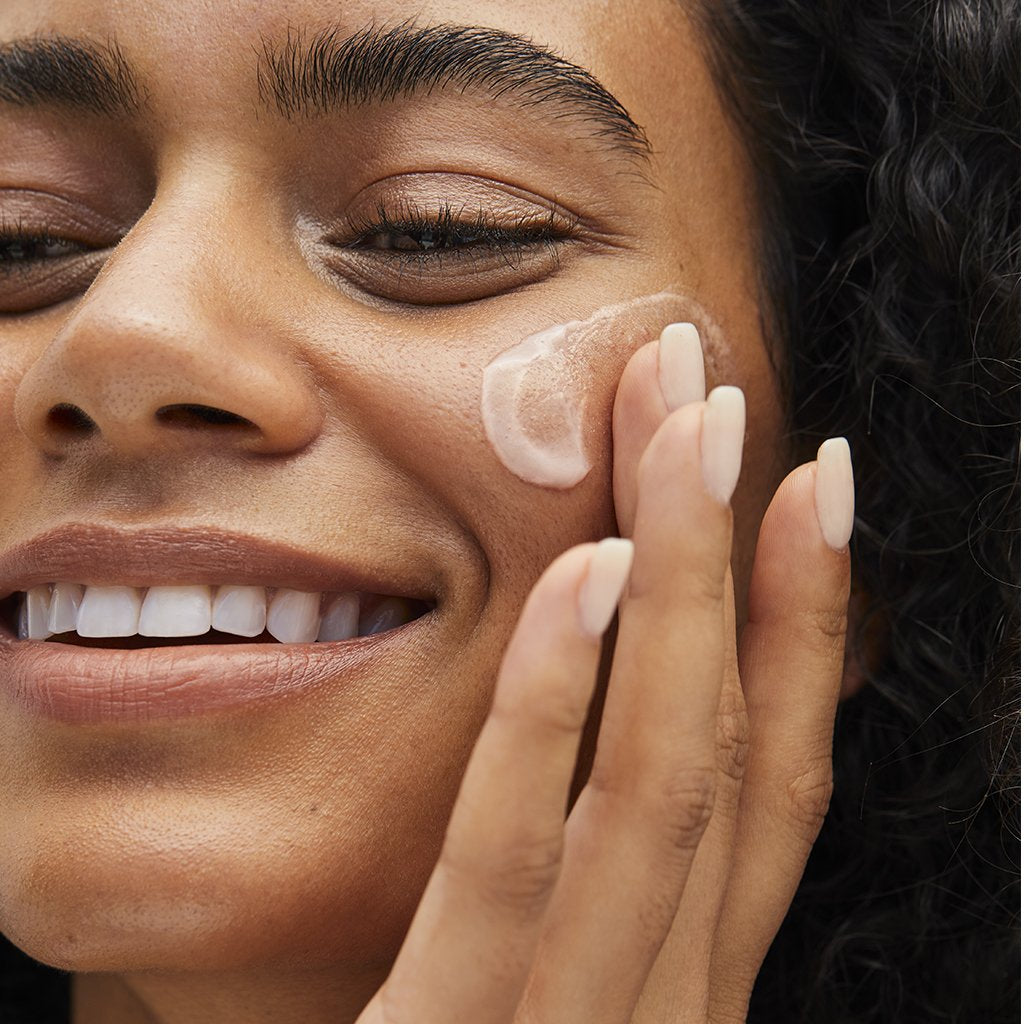
Unless you’re in the industry, it’s easy to get makeup product terminology mixed up. Is it a highlighter or an illuminator, a lipstick or a stain, an oil or a serum? We understand. Even for beauty insiders, pop culture has a way of nicknaming products that can make it hard to keep up.
Such is the case with makeup foundation primers. This three-word term really refers to a simple primer, a product you use before your foundation. Primers are excellent products that can create the perfect palette for the rest of your makeup.
Let’s talk about foundation, face primers, and how you can use both in your makeup routine.
What Is the Difference Between Foundation and Primer?
Both foundation and primer are applied to the skin before any of your other color cosmetics. The purpose of both is to create a smoother, more even skin tone that makes it easier for you to apply the rest of your makeup. They work hand in hand to get the job done. Here’s how.
Foundation
Foundation is a product that has color. Its job is to color, cover, and conceal imperfections on the skin. Foundation helps even out your skin tone. Most of us don’t have a perfectly even skin tone; we have areas of redness, irritation, or dark hollows under the eyes.
Foundation is used to bring these hyperpigmented areas back to your normal skin tone. It creates the look of an even complexion. Concealer is a related product that helps to color correct and cover blemishes.
Generally, concealer is a bit heavier in weight and substance, and offers more coverage than a foundation.
Primer
Primer goes on before your foundation, immediately after your skincare routine. It’s the first product you’d put on after your moisturizers and creams are fully absorbed.
Primer is used to smooth the skin, fill in lines and wrinkles, and create a less porous surface for your makeup. Primers are clear and slippery; almost like a serum. They aren’t meant to correct color or even out your skin tone.
Using a primer simply means your makeup application will be a little easier. However, some primers are made with ingredients that can also help treat specific skin conditions and issues, like dryness, oiliness, blemishes, or the early signs of aging.
What Does Foundation Primer Do?
The work of a primer is to prime your skin for makeup application. If you’ve ever wondered why your favorite foundations look amazing when you first apply them, and then begin to find every crease and pore on your skin within half an hour, a primer is for you.
A primer works like a shield on your skin to prevent your makeup products from being fully absorbed by your skin. In doing so, a primer can quite literally blur your pores and make them seem virtually invisible and fill in deep wrinkles so your makeup doesn’t find them and take up residency.
Something like the “Re” Evolve Radiance Locking Primer, in particular, is very forgiving and diffuses your pores for smooth-looking, beautiful skin.
What Type of Face Primer Should I Use?
When primers first hit the scene, they were miraculous, but only for their perfect canvas-creating abilities. Primers didn’t have benefits outside of smoothing your skin in preparation for your makeup.
Now, you can grab a primer that preps your skin for makeup and provides support for specific skin concerns. Here are some of the options you can find.
- Color Correcting. Color correcting primers help you tone down redness or perk up dull skin tone. Unlike foundation, they don’t usually come in skin-colored shades; they’ll come in shades of green or yellow to correct the color issue you’re experiencing.
- Anti-Aging. Anti-aging primers are spiked with ingredients to help treat wrinkles and fade the appearance of fine lines. These are like hybrid products; a cross between a skin serum and primer that you can use to turn back the hands of time and create a seamless finish on your skin before you apply your makeup.
- Moisturizing. Not just for dry skin types or aging skin, all skin types need moisture. Even oily skin can sometimes be the result of skin that is actually dehydrated. A moisturizing primer can help keep your skin hydrated longer than your moisturizer alone, which can mean your skin doesn’t readily absorb your cosmetics as quickly.
- Illuminating. An illuminating primer contains light-reflecting particles that give the skin a healthy glow. These types of primers are best used if you aren’t planning to completely cover your skin with concealer and foundation. If you cover an illuminating primer with foundation, you’re essentially covering the luminescence the primer created, rendering it useless.
- Mattifying. Oily skin types may appreciate a little extra help controlling shine. Using a mattifying primer can control oil longer, especially in oil-prone areas like your T-zone. Be careful, some mattifying primers can contain ingredients that initially help oily spots, but leave your skin dehydrated and cause it to produce more oil.
Pick your primer based on your skin’s individual needs. If you’re simply looking for pre-foundation prep, we recommend using an all-natural, plant-based primer that hydrates and conditions the skin; benefits that are useful for literally every skin type.
What Should I Look For in a Foundation Primer?
Living ingredients. It’s the number one requirement we’d recommend for your primer.
A primer sits directly on your skin and is sealed in by your makeup products. If your primer contains harsh, irritating ingredients or strange chemicals that could be dangerous for your skin, there’s a potential for harm.
If you pick a primer with a skin-boosting benefit like anti-aging properties or better hydration, living, raw ingredients are an absolute must. When ingredients are exposed to heat during the manufacturing process, the heat breaks down the healing properties of antioxidants, vitamins, and minerals, which can make the ingredients in the products useless.
RMS Beauty’s Beauty Oil contains a potent blend of supercharged oils that deeply hydrate, protect, and improve the skin’s texture while leaving it effortlessly smooth before makeup application. It works best when you apply just a little to damp skin to give it the best chance of absorbing.
- Lightweight Application. Our beauty oil is extremely lightweight and rapidly absorbs into the skin to create a silky smooth texture that helps makeup glide on with ease.
- Real Results. Real ingredients mean real results. Our beauty oil contains plant-based extracts in their most natural form to deliver potent results.
When shopping for a primer, here are some ingredients that are natural, plant-based, and work well to help prepare your skin for your foundation.
Jojoba Oil
Jojoba oil is a plant-based oil that is closest in chemical composition to your skin’s natural oil, sebum. This means when you use jojoba oil on your skin, it absorbs easily and quickly. Your skin naturally takes it in, utilizing it much like it does natural sebum.
Jojoba oil is a wonderful ingredient for primers because it has the same slippery, silky feel as synthetic silicones (which aren’t good for your skin but work well as primers). This slick texture helps form a protective barrier on the skin which can prevent makeup from seeping into pores or settling into lines and wrinkles.
Jojoba also helps your skin achieve moisture balance. If your skin is naturally oily, pass on the mattifying makeup primers (it’s probably filled with harsh ingredients that can dry the skin) and use jojoba oil. Your skin will naturally produce less oil which can help balance out oil production.
Part of the reason your pores appear larger might even be because your skin is dehydrated. They open up looking for moisture, so properly hydrating your skin with ingredients like jojoba oil may help.
Adaptogenic Herbs
You’ve probably heard of adaptogenics before, but if you aren’t familiar with them, we’ll explain. Adaptogenics are herbs that have health benefits, and there are many that are beneficial to your skin.
Think of adaptogenic herbs in a foundation primer as the method of addressing specific skin concerns. If you want to use a primer that also works to reduce the visible signs of aging, an adaptogenic blend of herbs will be most beneficial, and won’t cause skin irritation, dryness, or breakouts.
RMS Beauty’s blend of nine adaptogenic herbs work to soothe, soften, and hydrate your skin. They’re found in many of our products, including our beauty oil primer.
Rosehip Oil
Rosehip oil has many anti-aging benefits for the skin. It provides excellent skin hydration, and contains natural retinol as well as an abundance of vitamin C, a powerful antioxidant that protects skin from environmental stressors and helps brighten the skin.
Rosehip oil is also loaded with fatty acids to help boost your skin’s natural collagen and elastin production. It also works to help protect your skin’s natural barrier, which makes it especially important in a foundation primer.
At RMS Beauty, our rosehip oil is cold-pressed in Chile. Heat never touches our rosehip oil, which is important to ensure that all the skin-beneficial vitamins and nutrients are left intact.
Buriti Oil
Buriti oil is a little-known oil native to Brazil, and it’s packed with antioxidants, essential fatty acids, and vitamin A. It is wonderful for the skin and helps to smooth and moisturize it, creating an even palette for makeup application.
RMS Beauty’s buriti oil is wildcrafted (hand-gathered) in Brazil and cold-pressed to preserve the vitamins and minerals in the oil that are so vital to the skin.
Ingredients To Avoid in Foundation Primer
You might think we’re a bit obsessive about the purity of our ingredients, and we couldn’t agree more. Certain ingredients allowed in cosmetics in the U.S. aren’t materials you’d want anywhere near your skin.
Primers, especially, can be a favorite spot for harsh chemical ingredients to hide out. This is especially alarming considering that a primer will sit on top of your epidermis for hours at a time. The wrong ingredients can lead to breakouts and skin irritation, and some of them may even affect your endocrine system.
Here are some of the ingredients commonly found in facial primers you should avoid.
Alcohol
Alcohol is a drying ingredient that should never be used on any skin type, even oily. Alcohol is typically used to give products a mattifying effect on the skin, but that matte finish is short-lived.
Anytime your skin is treated with an ingredient that dries it out, it triggers your sebaceous glands to produce excess oil, making your skin even oilier than it originally was. In particular, you should avoid denatured alcohol at all costs. It’s incredibly harmful for your skin, and not only that. In the words of our founder Rose-Marie Swift, “If you drank it, you’d die.” And she's not wrong either.
Some primers contain alcohol to help prevent shine and allow makeup to have more staying power, but your skin’s natural oil will simply cut through the mattifying primer and melt off your makeup. A better solution is to use a product with a natural, plant-based oil, like jojoba.
Silicone
Many primers contain silicone. It’s the ingredient that allows primers to have a slippery, serum-like feel and produce an equally slick texture to your skin. What gives silicone great “sticking” power on your skin also makes it incredibly hard to completely remove.
Silicone builds up on the surface of the skin, which can clog pores and lead to breakouts. Silicone is a non-natural, chemically-laced ingredient that’s also dangerous for the environment. It is neither biodegradable nor recyclable.
Another aspect of silicone that isn’t skin friendly? It’s drying. Just like alcohol, silicone dries the skin, which can lead to irritation, breakouts, more noticeable fine lines and wrinkles, and of course, oiliness.
Lanolin
Lanolin is often used in primers as an emollient ingredient. Emollients work to smooth the skin by filling in deep wrinkles and smoothing over rough patches, so it makes sense it would be included in a primer.
Lanolin is extracted from the wool and skin of sheep. Sheep’s skin naturally excretes this substance to keep their wool conditioned and protected. This ingredient isn’t cruelty-free and is completely unnecessary in a skin care product. It also deploys a lot of chemicals, because it needs to be cleaned after removal from the sheep to ensure there are no bugs and no lingering dirt.
Plant-based emollients are much better in terms of skin conditioning and are also safer for your skin.
Stearic Acid
This is another ingredient added to primers as an emollient. While some stearic acids are plant-based, most are taken from animal fat. It can be impossible to know the source of stearic acid in your products unless you’re familiar with the brand and/or know the product to be cruelty-free.
Nanoparticles
Nanoparticles are microscopic particles that are found in numerous cosmetics, but they’ve consistently proven to be unsafe for use. They’ve been linked to negative health conditions like liver damage, brain, and nerve damage.
Nanoparticles are often added to products to give them a luminescent quality, or sheen. Tiny metallic particles added to products help give them this effect. You may find that illuminating primers contain nanoparticles, and if so, it can be hard to tell.
You’ll need to be familiar with the product and brand to know for certain whether or not it contains nanos.
At RMS Beauty, nanos are definitely a no-no.
Synthetic Fragrance
Fragrance is proprietary in the United States, which means you never know what ingredients are included in the product if the label simply states “fragrance.” To make sure you don’t end up with chemical ingredients or animal byproducts, stick with companies you trust to provide the cleanest, cruelty-free, vegan formulas.
How Do I Apply Foundation Primer?
You’ll apply your primer immediately after your last skincare product. Usually, this will be after your moisturizer and/or eye creams.
Start with a few small drops between your fingers and apply primer in a circular motion over your skin. Gently massage the primer into your skin without rubbing or scrubbing. Most primers are very concentrated, so only a few drops are needed.
Avoid over-applying. Once your primer is dry, you’re ready to begin your makeup routine. You don’t need to apply layer upon layer of primer to get a “better” effect. If you feel like your primer isn’t doing its job, switch to another.
You should only need a thin layer of primer before your foundation and concealer. Anything more can clog your pores or cause your makeup to look and feel heavy.
You may also choose to top your primer and foundation with a light dusting of “Un” Powder, a lightweight finishing powder. It’s made with 100% natural Japanese silica to diffuse and soften your look.
Just be aware when you’re searching for a powder to avoid synthetic, crystalline-structured silica, as this cheap product can give you a harsh flashback. You should also avoid talc in your powder, as this will dehydrate the skin and emphasize your pores.
How Can I Avoid Common Foundation Primer Mistakes?
One of the biggest primer mistakes you can make when using a primer is mixing synthetic and natural ingredients. In other words, if your skincare contains synthetic, chemical-based ingredients and you use an all-natural primer, you could risk interactions that could cause skin irritation.
Here are some other common mistakes you can avoid when applying your primer.
Let Your Primer Dry Fully
Most primers are rapidly absorbing, but even so, it’s important to make sure your primer dries completely before applying foundation and concealer. If your skin is still wet with primer, it will mix with your foundation and cause it to apply incorrectly.
You’ll also waste primer by not allowing it to dry before applying makeup. Inevitably, the primer will just combine with the first makeup product you apply to your skin and create a mess.
Think of Your Skin Type
All skin types can benefit from primers like RMS Beauty’s Beauty oil. Our blend of plant botanicals is especially beneficial for sensitive skin and can even help calm skin issues like psoriasis, eczema, and rosacea.
Afraid to use a skin oil if you have acne-prone skin? Don’t be. Our beauty oil helps regulate your skin’s natural moisture balance, which can help you see less blemishes.
There’s a caveat here: Oily skin types may be tempted to use mattifying primers to help reduce shine. It’s a bad choice. Most mattifying primers contain ingredients that aren’t beneficial to your skin and can actually make your excess oil problem even worse.
Instead, opt for plant-based oils in your primers to help regulate shine and balance your natural oil production.
Make Sure It Fits With Your Foundation Formula
No matter what primer or foundation you choose, make sure they’re safe to use together. RMS Beauty’s Beauty Oil works synergistically with both oil-based and water-based foundations to create a beautifully radiant finish.
“Un” Cover Up Cream Foundation contains living ingredients that help keep your skin hydrated and add additional benefits while evening out skin tone. It works great with our Beauty Oil or “Re” Evolve Primer to give you a beautiful canvas for your color cosmetics. Our founder, Rose-Marie, developed this product while prepping Victoria’s Secret models for the runway, because it looks like real, flawless skin. She was tired of all the products making her beautiful models look oily, cakey, or fake. So, she created a signature formula that makes for a natural, dewy look, while also working to nourish skin. Her Luminizer was even popularized by J.Crew.
For the most even blend, make sure to apply “Un” Cover Up with a wet beauty sponge, not a brush. This will give you that smooth, natural look.
Don’t Apply Too Many Primers
At RMS Beauty, we adhere to the less is more philosophy. You don’t need multiple primers. If you want a primer that does double duty (i.e. gives you anti-aging benefits and keeps your skin smooth), pick one that does both.
You’ll also want to make sure you always apply skin serums and oils prior to applying a primer, if you’re using a primer in addition to a beauty oil. If you apply a primer first, you’ll create a barrier that won’t allow the healing properties of your oil to penetrate.
Conclusion
Makeup foundation primers are just what we refer to as primers each and every day. They’re a useful tool that can create a flawless finish on your skin before you even apply makeup. They help makeup stay in place, and make it easier for you to apply it.
Primers can also help treat and correct a myriad of specific skin issues, if you know which ingredients work, and which ones you should avoid. Because a primer lays directly on your skin, it’s important to make sure the ingredients are safe, natural, and non-comedogenic before you decide to use it.
Using a primer that contains living ingredients helps hydrate, nourish, and reinvent your skin. Used regularly, you can transform your complexion with one simple product.
RMS Beauty is your go-to source for the cleanest, greenest cosmetics and skin care available. Don’t prime your skin with gross chemicals — choose our plant-based living ingredients to keep skin healthy and radiant.
Sources:
Skin Ageing: Natural Weapons and Strategies|NCBI
Anti-Inflammatory and Skin Barrier Repair Effects of Topical Application of Some Plant Oils|NCBI


